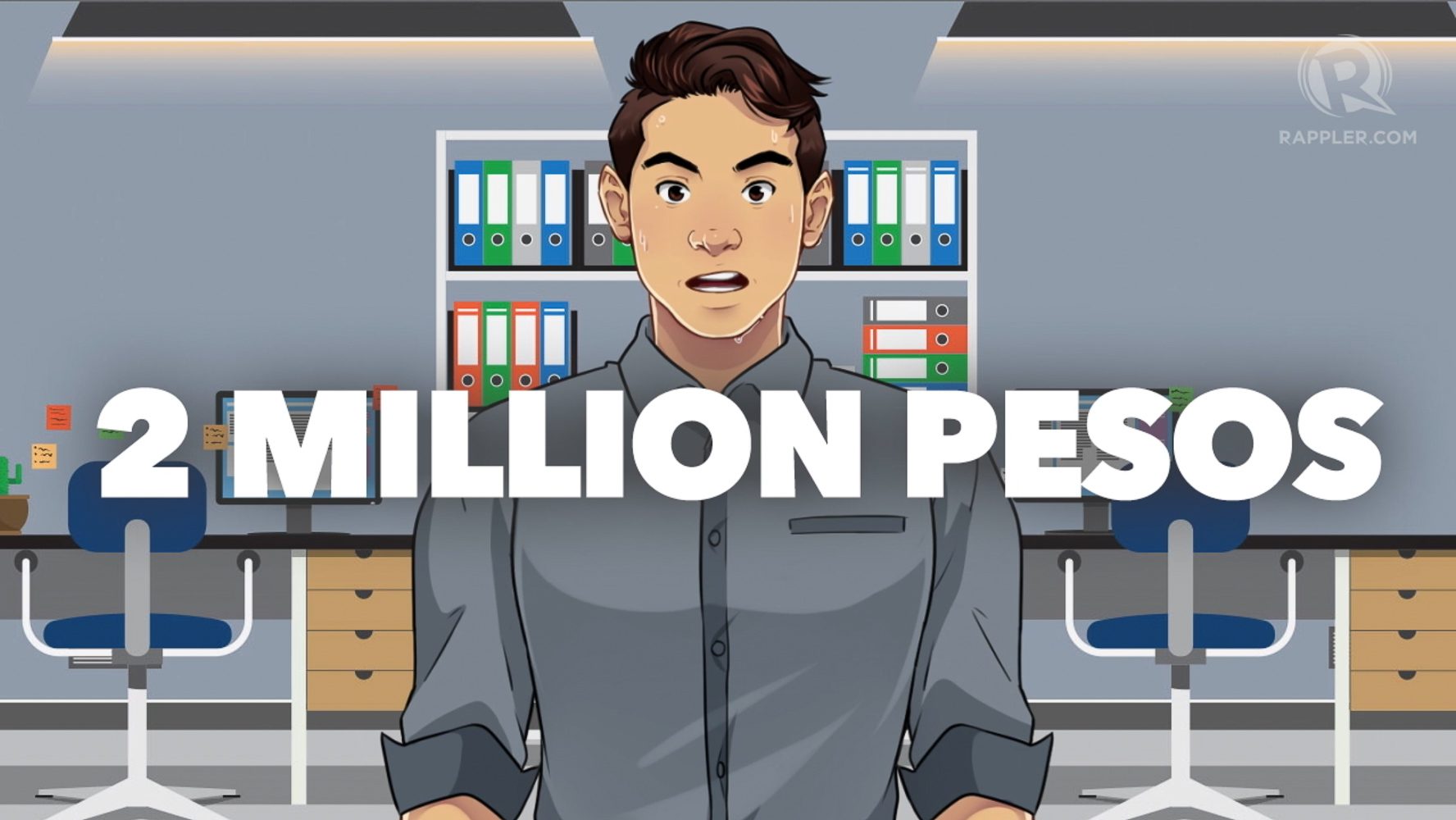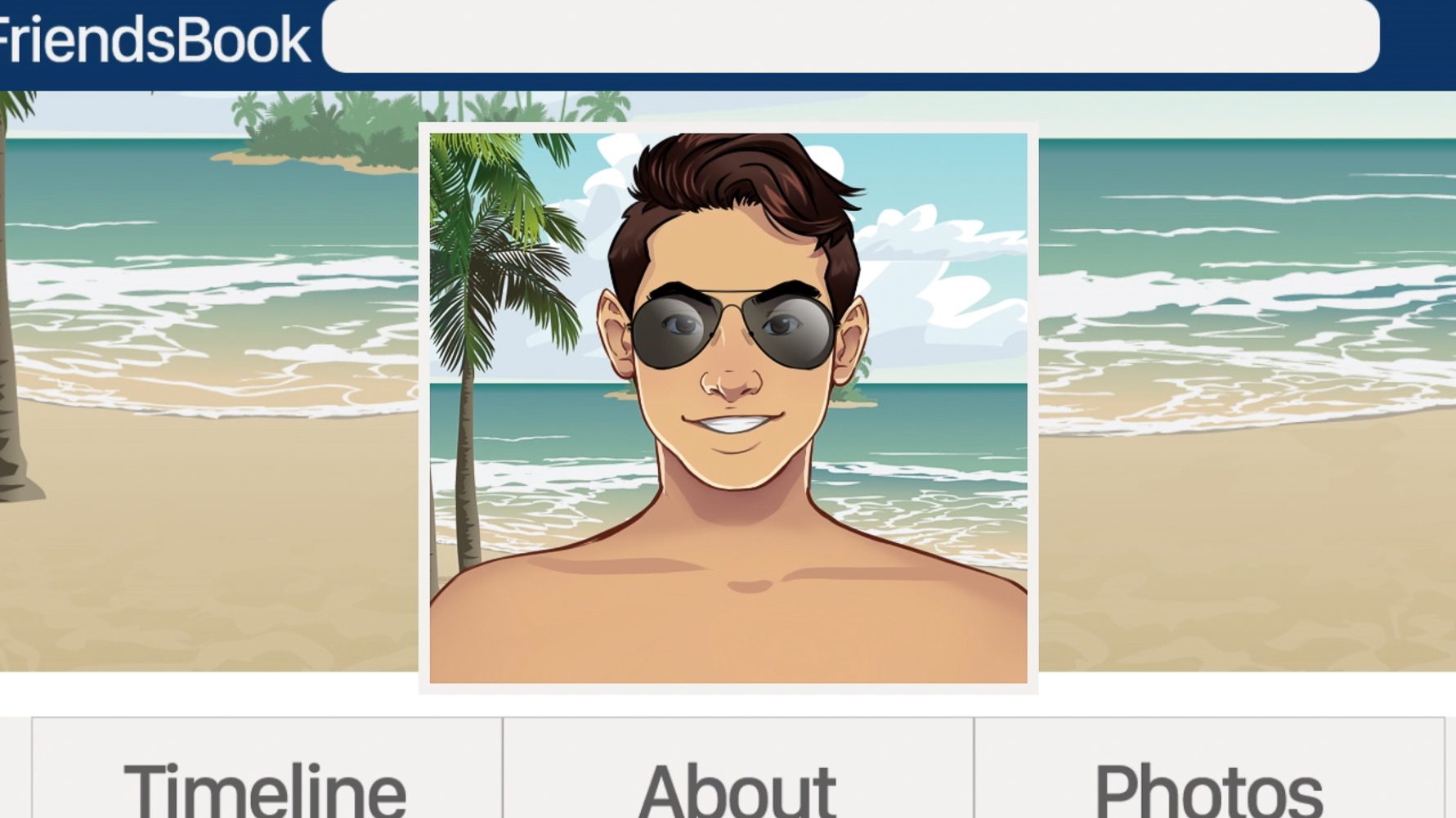SUMMARY
This is AI generated summarization, which may have errors. For context, always refer to the full article.
![[Podcast] ‘I thought I was too good for my job’: 10 first job fails](https://www.rappler.com/tachyon/r3-assets/DDEE99A696D1439BA2E1FDB6E6E0E5CE/img/7FCAE651C98342CE9F1C63EF1DFBA5D8/the_cube_illustrations-001.jpg)
MANILA, Philippines – There are some things people just don’t really talk about – how sweaty you really get at a job interview, messing up so bad at work you fear getting fired, what it’s like to royally mess up an important job interview.
Apprentice Asia winner Jonathan Yabut and Rappler’s career editor Wyatt Ong tackle all these and more in a new podcast called The Cube, a space to discuss all the big and little things that matter in your early career.
Head over here to download The Cube.
–Listen to the podcast above or read the transcript below (or both!).–
Listen to episode 2: Office politics and your work email
Wyatt: Today the topic is rookie mistakes at work, particularly for people just starting out in their career.

The 2-million peso mistake
Jonathan: Reminds me of so many mistakes I’ve done in my first ever company.
My first week, I was asked by my boss to print around 50,000 fliers. This was for a telecommunications company.
I felt it was the most unintelligent job to give to me on my first week. I was very snobbish, I was very arrogant. And so I kept laughing at it, didn’t take it seriously, until I realized I printed the fliers in INCHES instead of CENTIMETERS.
So come the next day, my boss calls me up, saying: “Jonathan, you’ve wasted two million pesos of the company’s [money]…two million. Two point something – I thought I was gonna get fired in my first job.

Luckily, the size was still passable. I learned in my first ever job about taking details seriously, especially in marketing. And, you’re never too important for any small task. (READ: 10 first job problems and how to handle them)
W: No job is too small for anyone. Today I work in a company that’s still pretty new – but everybody does small tasks as well as they do big ones.
J: Ako naman – I’m not gonna be the only one sharing my story. What was your first boo-boo in your first job?
When you completely screw up a job interview
W: I wasn’t even hired. It was a job interview. Wonderful company – but the very astute interviewer gave me a hypothetical situation and asked me to ask intelligent questions and then make an offer to buy a business. (READ: Your 10 common job interview questions, answered)
It was terrible. I took out my pen, I started doing calculations. I didn’t have to do them, I don’t know why, I just did them.
J: You were the bibo kid, you wanted to follow the rules.
W: I wanted to follow all the rules.
J: I guess the interviewer was laughing at you.
W: No, she was great. But apparently, I was asking all types of questions. “What color should the brand logo be?” And the thing I didn’t ask was, “What are your profit margins?” which should have been number one.
But you know what, I’ve never forgotten to ask about the bottom line, no matter what my job. And I think that moment prepared me for every single tough moment later on in my life. I gotta tell you, I was really affected. I sat outside in the curb and just kinda –
J: Cried?
W: Maybe.
What a rookie mistake, not really understanding the nuances of what I was getting into. Just learning how to manage these questions, which are designed to throw you off…
J: And remember guys, we’re not blaming [anyone for] any rookie mistakes, we’re surfacing them so you guys become more aware, and probably even avoid them because we have already made those mistakes ourselves.
W: There’s no judgment here in this space in The Cube, it’s all about sharing stories. Let’s spot these errors before they even come your way.
‘That’s not my job!’
W: One other thing that I always see very often in the workplace, a lot of new grads like to say, “Oh, that’s not my job” when you try to ask them to field some tasks.
I find that to be difficult to deal with because today job roles are very multi-faceted and they can cover a lot of things that might not necessarily have been in the contract. But I think if they’re newly starting, you owe it to yourself to try.
J: I think I’m gonna sympathize with some fresh grads. A lot of them think, coming from a university standpoint – they go to the corporate world thinking that if this is what’s written in my job description, then I should be working based on those limits.
But remember guys, the corporate world isn’t just about hard structure. In certain companies, you’re gonna be working loosely. And sometimes, it’s not about limiting what you can do, but asking people, can you also do this? Can you also touch this?
Asking permission is good, at the same time, taking initiative – bosses appreciate if you go beyond what you’re supposed to do.
W: Key thing: if you’re gonna go beyond what you’re supposed to do, make sure that the thing you were supposed to do in the first place is already done.
J: The basics are covered! Otherwise, you’re pumapapel.
W: I gotta say, I do understand where fresh grads are coming from. It can feel really overwhelming. So I think “that’s not my job” could be a knee-jerk reaction to being overwhelmed with the workload or perhaps just adjusting to a new work place.
J: Or, “I’m not going to be measured by that, so I shouldn’t be doing it. I’m gonna be working only where I’m going to be judged by my boss.”
W: Be careful how you come off. If you say, “Hey, that’s not my job,” that really sounds like you’re washing your hands of a certain task.
But if you ask: “Okay, I have these 3 other things on my plate, should I just focus on that, or do you want me to switch it out?”
J: “Every task is important, but which of these things are really the priorities of the company?”…I might also say [to decline], “I really want to help you right now, I really want to do this as well, but as of the moment, this is the priority, and I wanna focus my energies on this.”

Mingle, mingle
W: More on rookie mistakes – I’ve seen a lot of people talk about rookie mistakes when it comes to the first day at work.
J: It’s like you’re the new kid on the block, the new student in class. My first issue every time I move to a new company, I don’t know the people, I don’t know how to mingle, how to crack jokes.
I always have a hard time finding ways to socialize. So I guess the question is what are the opportunities you can [take advantage of]– and I think one rookie mistake is most fresh grads avoid those opportunities to mingle. (READ: 6 tips: How to network – when you really don’t like networking at all)
W: Example?
J: If someone asks you to dance at the Christmas party, I’m sorry guys, I would dance.
W: Oh no!
J: Even if I’m not a good dancer, I think it’s an opportunity to show who you are. It’s a good joke. I’d rather be known for something I did awkwardly rather than something I did, a bad mistake.
W: Dissenting opinion. I’m on the shyer side. I would be mortified and dying of stage fright if someone asked me to dance at the Christmas party even if I have done that in the past!
I would say, a compromise is to do something you are comfortable with.
J: Something you’re good at.
If the HR department asks for volunteers to help out in the next sports fest or charity event, I’d volunteer.
W: If you’re good at planning, go plan. If you’re a connector and have a lot of contacts, offer your contacts.
Be of use, be of value, and maybe you can save yourself from the embarrassing Christmas party dance-off. Or not.
J: And I think this is aligned with your first issue about “this is not my job.” I think people might usually skip this because it isn’t part of your job.
But it is part of your job to build relationships so when you need something from them, or they need something from you, the workflow is easier, smoother.
No cover letter or email
W: Key rookie mistake: when I get emails inquiring about job openings, I still get this – blank emails with resumes in the attachment.
J: As if “Hi, hello. Please read. Thank you!”
W: That’s terrible. Would you even look at an email like that?
J: I would see that as a reference to the person’s character, a lack of courtesy to write the reason you’re emailing, plus a lack of formality.
It’s important, especially if you’re applying to one of those big top companies, or a start-up, try to show some sort of personality.
W: It wouldn’t have to be formal necessarily, but I think you would need to show that you know something about the company.
J: Show that you want the job, not just because you need to pay the bills.
Applying to way too many companies
W: What about some key tips to get your foot in the door?
I think everybody is going to go through HR, everybody’s gonna go through a third party application. I think if you really want that job, instead of sending a thousand resumes to a thousand companies, you are better off focusing your efforts into trying to get into a few. (READ: Don’t make these 5 resume writing mistakes)
J: Companies that highlight your strengths, companies you love, the industries you think you’ll thrive in. At the end of the day it’s quality, not just the volume of the applications. And remember, sending all those emails, LinkedIn messages, it’s gonna be tiring.
W: And you’re only going to take one job, not 10 jobs. So focus your efforts on where you really want to go, and then try to find a way in.
Does somebody know someone who knows someone? Go to an event where they probably will be. Share your knowledge. There might be something interesting about you that captures their attention.
J: I think the reason why you need to know if you want to work for this company and shortlist them, is because during your interview, you don’t want to sound like you’re applying for a job because it pays the bills.
You have chosen this job because this company is something you believe in, you have the same ideals, you think it will shape your skills.
Never sound like you’re desperate to be hired. There’s a reason why you want to be hired by this company.

Pretending to work
W: More rookie mistakes. Real talk, everybody tells white lies at work. But everybody can see when you’re really on Facebook when you’re supposed to be working. I think bosses can tell…
J: Or when people file a sick leave but apparently they’re off swimming in Boracay…
W: It depends on your workplace. But when you’re not working and just on Facebook, I think your bosses can tell.
J: I think the moral lesson here is if you’re that kind of guy who’s very outgoing, lots of activities outside work, you need to decide if you want to ‘friend’ people on social media or not.
There are people who prefer not to friend them, especially your boss. Even if you’re not doing anything wrong, you don’t want to be judged based on what you do, it’s inevitable.
You’re frowning a bit –
W: I think in today’s world, you can’t really separate work and life anymore.
J: The lines are blurred.
W: The lines are totally blurred, I don’t even think there is a line anymore. So I think it’s important for you and your boss to be on the same page.
J: It’s a matter of determining what you want to post.
W: Be careful what you post. If there’s something they’ve asked you to do, just do it. Don’t go on Facebook. They’ll know.
J: Don’t badmouth people on Facebook as well.

Late!
W: More – I think it extends to before you’re hired, just like my job interview fiasco. I think a key rookie mistake is being late.
J: I’d rather be super early –
W: I’d rather be hours early than 30 minutes late.
J: I would usually find a coffee shop near that office, compose myself, be there for 30 minutes, be there for an hour or even 2 hours, rehearse what I’m gonna be saying.
I’d rather do that than hurriedly be dashing through the office, apologizing to the concierge or to the interviewer and say, “It was traffic.” But in Metro Manila, traffic is no longer an excuse, traffic is a given.
W: Have you ever been late to a job interview?
J: Good thing, no.
W: I’ve been late.
It was a horrible experience. I left my house 3 hours early, but I was still late.
So the thing here is that people don’t take into consideration certain non-verbal things about it. You may be just on time, but you’ll arrive sweaty, out of breath, and that just doesn’t look good.
You may feel a little scrambled, you’re not focused because you were too worried about being late.
You need time to calm down, you need time to answer those questions. And I think that is something that you should take into account when you’re going to a job interview.
Clueless about the company
J: I have one question. I’m sure you’ve interviewed folks who would report to you or would be working for the company.
One of my pet peeves – when you interview certain fresh grads and you ask the about the company, they don’t even know what the company’s products and services are, or what it’s up to. Has the company been in a scandal, has it been doing well? And it looks like they just came because they want a job. What do you think?
W: They should come armed with questions. You should have read about the company. I actually have interviewed quite a number of people – if they don’t know anything about the company, I will not consider them.
I have known other bosses who might consider them, depending on the need and the role they’re supposed to fill. Especially if it’s a higher level position, I will not consider them.
J: It makes me question, why would you even apply for this job if you don’t even know what the company is?
Do your research. The websites are all there, social media’s out there, you can easily Google a company.
‘Do you have any questions for me?’
W: The last question they usually ask, do you have any questions for me – hey, the answer is always yes. Don’t ever say no to that. Come armed with questions, but also don’t memorize them. They should feel organic to you. They should say something about you.
What do you like to do, what do you want to do for the company. Don’t ask about salary or the perks right away –
J: Not yet!
W: But you wanna ask about things like, is there a program in the company where I can get involved in this and this –
J: What’s the company culture?
W: What’s the company stance on a certain issue, that’s important to you?
J: Why is my position being vacated? For me, that’s important. I wanna know, is this a role that’s being expanded, why did the person leave?
W: Or can you tell me more about the career path of other people who have been in my position in the past?
So that wraps our rookie mistakes. By no means are these all of it, but The Cube is a space where everyone can help each other, so send in all of your questions to desk@rappler.com. See you next time on a new edition of The Cube. – Rappler.com
 Jonathan Yabut is the proud Filipino winner of the hit Asian reality TV show, The Apprentice Asia and is currently based in Kuala Lumpur as the managing director of his own marketing consultancy firm, The JY Ventures & Consultancy. Jonathan is Asia’s leading motivational speaker on topics involving leadership, development of Gen Y workers, and career management for Fortune 500 companies. He is also the author of Southeast Asia’s 2015 best-selling motivational book, From Grit to Great. Visit his official Facebook Fanpage here.
Jonathan Yabut is the proud Filipino winner of the hit Asian reality TV show, The Apprentice Asia and is currently based in Kuala Lumpur as the managing director of his own marketing consultancy firm, The JY Ventures & Consultancy. Jonathan is Asia’s leading motivational speaker on topics involving leadership, development of Gen Y workers, and career management for Fortune 500 companies. He is also the author of Southeast Asia’s 2015 best-selling motivational book, From Grit to Great. Visit his official Facebook Fanpage here.
 Wyatt is the Lifestyle and Entertainment editor of Rappler and is the creator of Rappler’s Career section. She previously worked in the magazine and fast-moving consumer goods industries.
Wyatt is the Lifestyle and Entertainment editor of Rappler and is the creator of Rappler’s Career section. She previously worked in the magazine and fast-moving consumer goods industries.
Add a comment
How does this make you feel?
There are no comments yet. Add your comment to start the conversation.